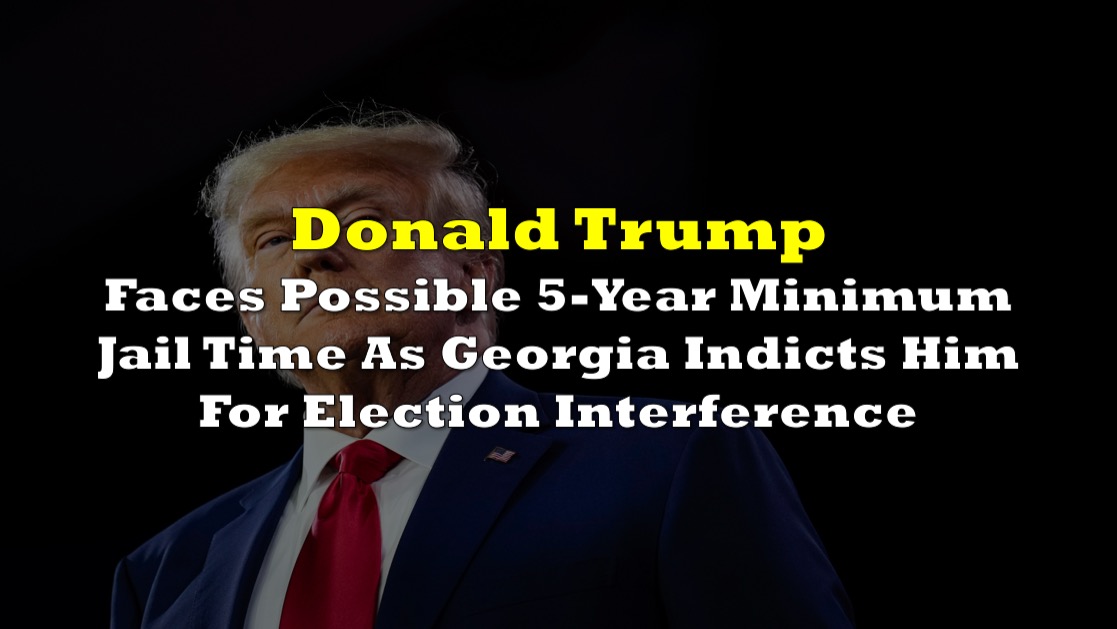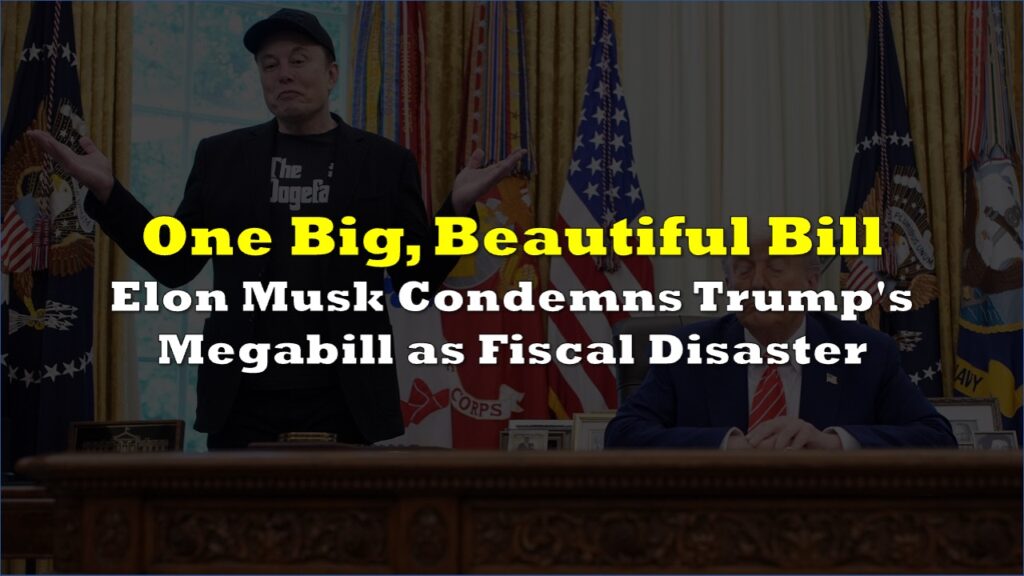A local prosecutor in Atlanta has filed criminal charges against former US President Donald Trump for his alleged efforts to overturn the results of the 2020 election in Georgia. This marks the fourth indictment this year for the former president, further intensifying his legal challenges as the 2024 election looms.
The indictment against Trump was returned by a grand jury in Atlanta following an extensive two-year investigation led by Fulton County District Attorney Fani Willis, a Democrat. Willis had previously announced her intention to reveal charging decisions during the summer months, preparing for the potential public response.
The investigation stemmed from a recorded phone call on January 2, 2021, in which then-President Trump urged Georgia’s top elections official, Republican Brad Raffensperger, to find additional votes to overturn the election results. Trump, a prominent contender for the 2024 Republican presidential nomination, maintains his innocence, describing the call as flawless. He has criticized the Fulton County investigation as a baseless witch hunt.
Willis assembled a special grand jury that heard testimony from over 75 witnesses and produced a comprehensive report summarizing its findings. The report recommended criminal charges against individuals whose identities have not been disclosed. Since the special grand jury lacked the power to issue indictments, Willis presented the evidence to a regular grand jury.
According to the indictment, Trump faces 13 counts of felony charges, including violation of the Racketeer Influenced And Corrupt Organizations (RICO) Act, a serious felony charge which carries a minimum 5 years and up to 20 years in prison.
There are 13 felony charges against Trump, including RICO, conspiracy to commit forgery, filing false documents, Solicitation of Violation of Oath by Public Officer and more pic.twitter.com/ohq7Jp6XYc
— Tamar Hallerman (@TamarHallerman) August 15, 2023
The real reason the Georgia RICO statute (GA Code 16-14-4) charge is a big deal is that it carries a minimum 5 years and up to 20 years in prison under 16-14-5. I wonder if she'll wait for him? pic.twitter.com/PU8YF4uyy3
— Tim Hogan 浩勤 (@TimInHonolulu) August 14, 2023
Unlike his previous indictments when he posted bail, the former president’s conditional release on the Georgia case is in question. On the eve of the indictment, Trump posted a scathing callout on his social media platform Truth Social against former Georgia Lt. Governor Jeff Duncan, calling him a “loser” and advising him not to testify before the latter is supposed to testify on the grand jury. According to Georgia law, in order to grant bail to an individual, the judge must determine that the defendant does not present a notable risk of intimidating witnesses.
The Truth Social post might also be utilized as a violation of his bail conditions in his indictment related to the January 6th insurrection case.
2. As @AWeissmann_ has pointed out, Trump's statement against Duncan may also violate the conditions of release in federal January 6th case before Judge Chutkan.
— Ryan Goodman (@rgoodlaw) August 14, 2023
The effort to overturn the Georgia election results is a core subset of that case and associated witnesses. pic.twitter.com/YhqE4DvEtG
The November 2020 election saw Trump lose to Joe Biden in Georgia by around 12,000 votes out of five million cast. Despite allegations of election theft from Trump and his supporters, comprehensive recounts and an audit conducted by state election officials revealed no substantial evidence of widespread fraud. Legal challenges mounted by Trump proved unsuccessful.
Earlier this year, Trump faced indictment from Manhattan District Attorney Alvin Bragg for his involvement in making hush money payments to a porn star just before the 2016 election—a historic first for a former U.S. president.
In June, federal prosecutors unsealed a sweeping indictment, alleging that Trump unlawfully retained classified documents and shared them with others. This case is currently being addressed in Florida.
A superseding federal indictment returned in July added an extra charge of willful retention of national-defense information, claiming Trump showed a classified national-security document to visitors at his New Jersey golf club.
Trump’s legal challenges escalated once again on August 1, when a federal grand jury in Washington indicted him a third time. The charges include conspiring to defraud the U.S., obstructing an official proceeding, and conspiring against the rights of voters—linked to his actions leading up to the January 6, 2021, attack on the U.S. Capitol by his supporters.
Trump has entered pleas of not guilty in cases across New York, Florida, and Washington, D.C. As his legal battles intensify, the former president’s future remains uncertain amid ongoing court proceedings.
The Trump effect
Republican strategists are expressing growing apprehension over potential voter turnout challenges for their party in the upcoming 2024 election if Trump fails to secure the GOP’s presidential nomination or faces exclusion from the ballot due to mounting legal troubles.
A core concern is that a significant portion of Trump’s steadfast supporters, estimated to comprise 25% to 35% of the party base, might disengage if he is not the nominee. Experts highlight that Trump’s absence could lead to a reduced enthusiasm among his dedicated coalition.
An analysis by Pew Research Center indicates that heightened turnout among Trump supporters significantly contributed to Republicans regaining control of the House during the 2022 midterm election. In this regard, 71% of Trump voters participated in the midterm election compared to 67% of Biden supporters.
Republican strategists are particularly worried about potential criminal prosecutions affecting Trump’s path to the nomination. Such outcomes could discourage his unique coalition of nontraditional voters from participating, leading to potential difficulties in crucial states like Ohio and the Midwest.
While Trump leads national polls by a significant margin, some strategists emphasize that he has not yet pledged loyalty to the Republican National Committee. The absence of this pledge and the potential for Trump to criticize a non-Trump nominee could further exacerbate divisions within the Republican electorate.
Experts predict that Trump’s influence remains significant, particularly among specific voter segments. The intensity of his support, especially among Tier 1 voters who are solidly behind him, makes it challenging for other Republican candidates to compete effectively.
Republican strategists also highlight Trump’s importance in winning crucial Midwestern states like Michigan, Pennsylvania, and Wisconsin. His unique ability to assemble a coalition in these states played a pivotal role in his victory in 2016. Without Trump as the nominee, these states may become more challenging for Republicans to secure.
The former US president is still mounting his presidential run for 2024. Latest poll shows Trump still leading the Republican primary by a huge margin, with former South Carolina Governor Nikki Haley and Florida Governor Ron DeSantis trailing in distant second and third places.
Information for this story was found via The Wall Street Journal and the sources mentioned. The author has no securities or affiliations related to the organizations discussed. Not a recommendation to buy or sell. Always do additional research and consult a professional before purchasing a security. The author holds no licenses









